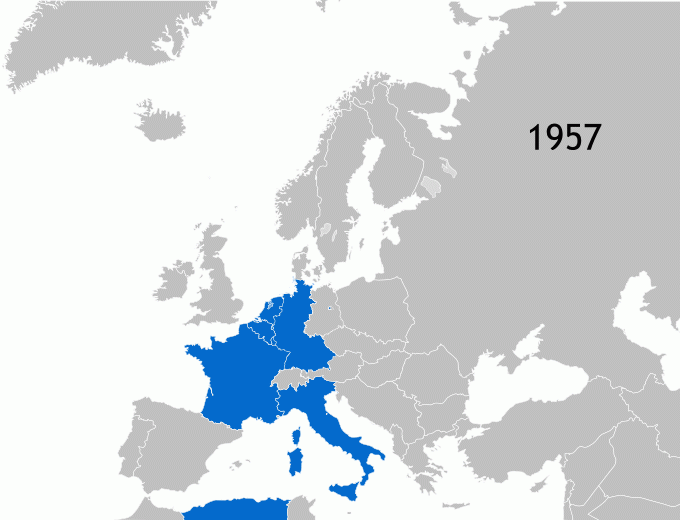The UK and the EU: The Beginning

The UK and the EU: The Beginning
The EU is primarily a trade bloc. When it comes to global markets there is strength in numbers, and it is easier for the EU to negotiate trade deals with countries like China, the USA, and Russia, than it is for individual countries to do so.
The EU also offers its member nations access to a larger market than they have as individual countries. There is free flow of capital, goods, services, and people across the borders of member nations.
Today, the EU is more than just a trade organisation. Over the years, there has been a gradual development from a strong focus on economic cooperation to including political cooperation.
The EU has declared that it has a number of goals such as promoting peace, ensuring freedom, ensuring sustainable development, combating social exclusion and discrimination, promoting scientific and technological research, and much more.
After the destruction Europe suffered in World War I (1914-1918) and World War II (1939-1945), European leaders tried to find solutions that would prevent future wars on European soil. One idea was to make European countries financially dependent on each other in order to eliminate any destructive competition.
The Treaty of Paris, signed in 1951 by Belgium, the Netherlands, Luxembourg, Italy, the Federal Republic of Germany, and France, established the European Coal and Steel Community (ECC).
In 1957, the Treaty of Rome established the Common Market, and the organisation changed its name to the European Economic Community (EEC).
It may seem surprising that the United Kingdom was not among the founding members of the EU. The country had played a leading role in both World Wars and suffered devastating losses. However, there was widespread scepticism in the UK towards cooperating with Europe. The UK had a large global empire, and there was a concern that stronger ties to Europe would weaken the UK’s ties to its current and former colonies. Many were also worried that entering into a cooperation with other European countries would weaken Britain's sovereignty.
Britain first began talks to join the EEC in July 1961. They applied to join in 1961 and 1967, but the French President, Charles de Gaulle, vetoed their membership both times. He had several reasons not to want Britain in the EU: de Gaulle believed they would always side with the USA in conflicts, that they would oppose the Common Agricultural Policy that France wanted, and that they lacked the willingness to compromise and cooperate. After de Gaulle stepped down as President, the UK applied for a third time and was accepted.
In 1973 the UK was allowed to join the EEC. A referendum was held in the UK in 1975 to make sure that the people were behind the decision to join the EU: 67.3% said they supported the decision to join, 32.77% were against the membership.
Relatert innhold
Tasks related to the articles about the UK's relationship with the EU (Brexit). (Individual work).
Tasks related to the articles about the UK's relationship with the EU (Brexit).